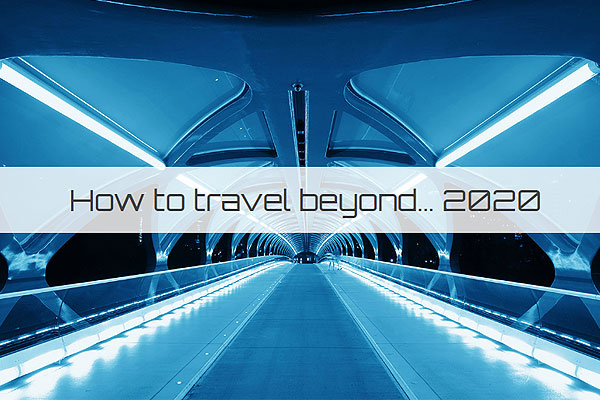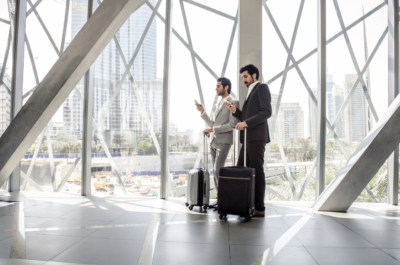BCD Travel identifies sustainability challenges for business travel and shares tips and solutions.
UTRECHT, THE NETHERLANDS – There’s no universal dress code for business travel, but BCD Travel predicts an increasing preference for green. That’s green, as in travelling more sustainably and striving for climate-neutral journeys. In its new online report, How to Travel Beyond 2020 , BCD identifies the sustainability and mobility trends for 2020 and beyond.
Research shows that every dollar spent on business travel results in US$12.50 in incremental revenue, and prospective clients are 50% more likely to sign a contract after an in-person meeting. “We’re traveling more than ever before. The number of international flights rose to 1.4 billion in 2018, two years sooner than predicted and the global economy is still growing,” said Mike Janssen, global chief operating officer and chief commercial officer at BCD. “In our partnership with clients, our role is to help customers accomplish their business objectives while also providing them with the tools and information to reduce the impact that air travel has on climate change.”
Solutions are on the way
Fortunately, the transport and mobility industry has taken on the challenge and is busy working to solve the sustainability puzzle. Some solutions may even be available next year, predicted Miriam Moscovici, senior director of Research & Innovation at BCD. “Humans managed to reduce extreme poverty worldwide by half over the past 20 years. Eighty percent of people around the globe now have access to electricity,” she said. “If humans can achieve this, imagine what we can do for a world that wants both travel and the environment to thrive. The solution to sustainable mobility systems and fast, clean transportation could be just around the corner.”
Some of the technologies and solutions in development include:
1. Hyperloop
In theory, Hyperloop will enable people to travel between cities in aluminum pods gliding through elevated, low-friction tubes at 700 to 800 miles per hour. This zero-carbon emission form of transportation would present a realistic alternative to air travel over short distances. It also would integrate with air travel to simplify the door-to-door journey for longer trips. High-speed testing is planned for 2020, and the first launch could happen by the end of 2023.
2. Electric-powered flights
Many airplane manufacturing companies are already developing electric aircraft. At first, these planes would be able to travel solely on electricity no farther than the average family car. Beyond 500 miles, they would need a mix of conventional fuel and electric power. Yet even these hybrids could still deliver a big reduction in CO2 emissions. Partially or all-electric airplanes are being tested right now and could be operational by 2022.
What can businesses and travelers do right now? Some useful tips
While the travel and transportation industry focuses on next-generation technology, companies and their travelers can act now to reduce the climate impact of business trips. BCD experts focused on sustainability offer some advice:
- Assess your organization’s sustainability efforts with the Sustainability in Travel Self-Assessment Tool. Created by the – Global Business Travel Association and BCD, it allows travel managers to measure 10 areas of travel program sustainability to identify strengths and weaknesses. The tool provides recommendations for improvement.
- Carefully consider whether meeting in person is necessary or if alternatives to air travel are available that can help you reduce your CO2 emissions. Internal meetings that don’t boost sales or the bottom line are a good place to start using virtual collaboration and reducing trips.
- If flying is necessary, consider offsetting the impact of your business travel by calculating the cost of your CO2 emissions and donating that amount to sustainable energy projects around the globe. BCD’s DecisionSource lets you report on your company’s Air Emissions and provides summaries that can be used for CO2 compensation.
- Engage business travellers and raise their awareness by using tools like TripSource to share tips on making business trips more sustainable—such as choosing eco-label hotels, combining several appointments on one business trip, renting electric cars or using public transportation.
- Get more inspiration by reading BCD’s seven steps for greater sustainability.
What else to expect in 2020
In addition to environmentally friendly initiatives, BCD has identified other 2020 trends sure to affect business travel. The continued development of autonomous cars could allow business travellers to spend their time as passengers preparing for meetings, rather than as drivers who must keep their eyes on the road. Urban air mobility solutions like an autonomous flying taxi could truly take mobility a few levels higher and resolve increasing traffic problems. The renewed interest in space travel could lead to innovations that reduce long-haul travel time to almost a tenth. Robots popping up in airports and hotels could improve business travel experiences. These are among the trends highlighted in BCD’s business travel outlook for 2020.
Tatiana is the news coordinator for TravelDailyNews Media Network (traveldailynews.gr, traveldailynews.com and traveldailynews.asia). Her role includes monitoring the hundreds of news sources of TravelDailyNews Media Network and skimming the most important according to our strategy.
She holds a Bachelor's degree in Communication & Mass Media from Panteion University of Political & Social Studies of Athens and she has been editor and editor-in-chief in various economic magazines and newspapers.






















































































































































































